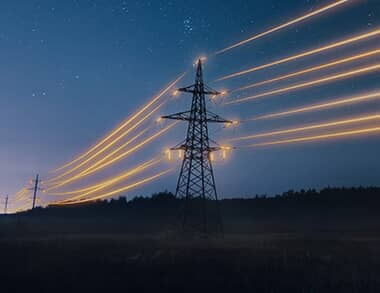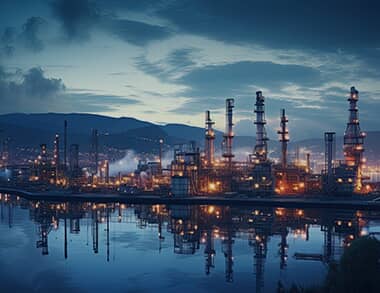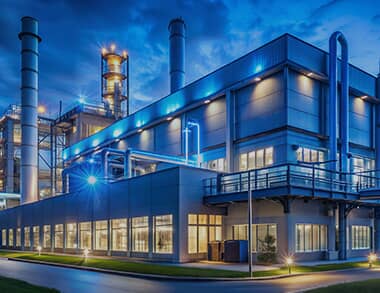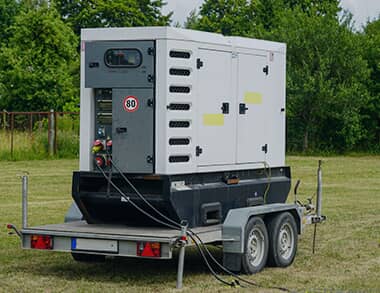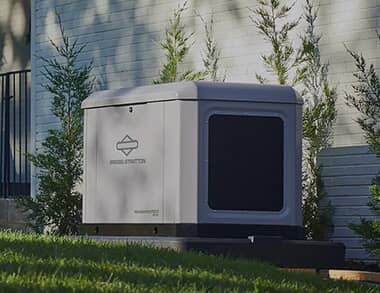Is Diesel or Natural Gas Best for Your Health Facility's Back-up Power?

Diesel gas or natural gas? Which is the best type of generator for your healthcare facility? Both have advantages and disadvantages. At Gen-Tech, it is our pleasure to help you compare each system and determine which is best for providing the steady, reliable stream of power your patients and staff depend on for their safety.
Diesel generators are typically less expensive to purchase, which is why they tend to be more common. When it comes to maintenance, both will require regular maintenance and repairs. However, while your diesel generator might let you get away with a looser maintenance regimen, that is a potentially lethal mistake with a natural gas generator. Failure to stick to a strict maintenance schedule with a natural gas generator can result in leaks and other damage that can have potentially explosive results.
Natural gas generators tend to be a little quieter than diesel generators. This is ideal for healthcare facilities where peace and quiet are at a premium. Of course, if your emergency standby generator is located outside your hospital, clinic, etc., then noise pollution may not be much of a factor in your decision. However, don't forget that you will need to install your standby generator within a sound-attenuated structure in many municipalities. This is an added expense, but it has the added advantage of helping to protect your generator from damage while lessening the amount of noise pollution patients and staff are exposed to.
Regarding fuel storage, diesel generators require you to store significant quantities of fuel in either below ground or above ground fuel storage tanks. Conversely, natural gas generators can be connected directly to the gas line, which alleviates the need for most healthcare facilities to store significant quantities of fuel. However, because there is the potential for disruption of the gas supply, it is necessary to store a regulatory compliant emergency supply on-site. So, in both cases, you will need to store fuel; it is really just a matter of which type of fuel and how much you want to store.
In terms of safety, diesel fuel is nowhere near as flammable as natural gas. If diesel fuel leaks occur, they are relatively easy to soak up. On the other hand, natural gas is explosive, and the smallest spark can ignite a chain reaction of disasters. That said, natural gas explosions and natural gas fires are relatively rare. Modern safety systems and the inclusion of mercaptan within natural gas means that most natural gas leaks are quickly detected and promptly sealed before leaks become headline-grabbing explosions.
Still undecided about which system is best for your health facility's backup power source? Contact the emergency power generation specialists at Gen-Tech by calling (800) 625-8324, and we will be happy to help you sort through your options.
Comparing Diesel and Natural Gas Generators
Diesel generators are typically less expensive to purchase, which is why they tend to be more common. When it comes to maintenance, both will require regular maintenance and repairs. However, while your diesel generator might let you get away with a looser maintenance regimen, that is a potentially lethal mistake with a natural gas generator. Failure to stick to a strict maintenance schedule with a natural gas generator can result in leaks and other damage that can have potentially explosive results.
Natural gas generators tend to be a little quieter than diesel generators. This is ideal for healthcare facilities where peace and quiet are at a premium. Of course, if your emergency standby generator is located outside your hospital, clinic, etc., then noise pollution may not be much of a factor in your decision. However, don't forget that you will need to install your standby generator within a sound-attenuated structure in many municipalities. This is an added expense, but it has the added advantage of helping to protect your generator from damage while lessening the amount of noise pollution patients and staff are exposed to.
Regarding fuel storage, diesel generators require you to store significant quantities of fuel in either below ground or above ground fuel storage tanks. Conversely, natural gas generators can be connected directly to the gas line, which alleviates the need for most healthcare facilities to store significant quantities of fuel. However, because there is the potential for disruption of the gas supply, it is necessary to store a regulatory compliant emergency supply on-site. So, in both cases, you will need to store fuel; it is really just a matter of which type of fuel and how much you want to store.
In terms of safety, diesel fuel is nowhere near as flammable as natural gas. If diesel fuel leaks occur, they are relatively easy to soak up. On the other hand, natural gas is explosive, and the smallest spark can ignite a chain reaction of disasters. That said, natural gas explosions and natural gas fires are relatively rare. Modern safety systems and the inclusion of mercaptan within natural gas means that most natural gas leaks are quickly detected and promptly sealed before leaks become headline-grabbing explosions.
Still undecided about which system is best for your health facility's backup power source? Contact the emergency power generation specialists at Gen-Tech by calling (800) 625-8324, and we will be happy to help you sort through your options.
Topics:
From Insights to Power: Let’s Talk Solutions
Whether you need emergency power, maintenance, or expert guidance on your generator system, Gen-Tech has you covered. Our experienced team provides industry-leading service to keep your power running when it matters most. Call (800) 625-8324 to discuss your power generation needs today!
Contact Us
